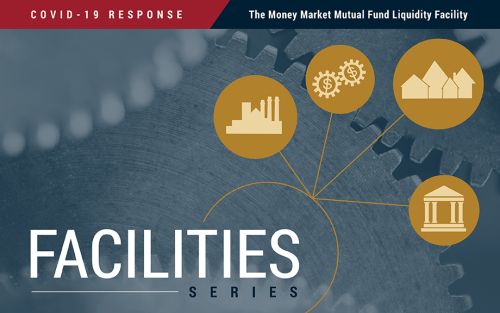How Has Post‑Crisis Banking Regulation Affected Hedge Funds and Prime Brokers?

“Arbitrageurs” such as hedge funds play a key role in the efficiency of financial markets. They compare closely related assets, then buy the relatively cheap one and sell the relatively expensive one, thereby driving the prices of the assets closer together. For executing trades and other services, hedge funds rely on prime brokers and broker-dealers. In a previous Liberty Street Economics blog post, we argued that post-crisis changes to regulation and market structure have increased the costs of arbitrage activity, potentially contributing to the persistent deviations in the prices of closely related assets since the 2007–09 financial crisis. In this post, we document how post-crisis changes to bank regulations have affected the relationship between hedge funds and broker-dealers.
The Money Market Mutual Fund Liquidity Facility

To prevent outflows from prime and muni funds from turning into an industry-wide run after the COVID-19 outbreak, the Federal Reserve established Money Market Mutual Fund Liquidity Facility. This post looks at the Fed’s intervention, its goals, and the direct and indirect market effects.
The Pre‑FOMC Announcement Drift: More Recent Evidence

We had previously documented large excess returns on equities ahead of scheduled announcements of the Federal Open Market Committee (FOMC)—the Federal Reserve’s monetary policy-making body—between 1994 and 2011. This post updates our original analysis with more recent data. We find evidence of continued large excess returns during FOMC meetings, but only for those featuring a press conference by the Chair of the FOMC
What Do Bond Markets Think about “Too‑Big‑to‑Fail” Since Dodd‑Frank?
As we discussed in our post on Monday, the Dodd-Frank Act includes provisions to address whether banks remain “too big to fail.”
From the Vault: Separating News and Noise … and Jokes
Tesla Motors’ shares saw a brief bounce from a far-out and fictional product (a smart watch) announced as part of an April fool’s prank. While markets evidently made quick sense of the joke, that’s not always the case.
Herd Behavior in Financial Markets
Over the last twenty-five years, there has been a lot of interest in herd behavior in financial markets—that is, a trader’s decision to disregard his or her private information to follow the behavior of the crowd.
Lunch Anyone? Volatility on the Tokyo Stock Exchange around the Lunch Break on May 23, 2013, and Stock Market Circuit Breakers
Stock market circuit breakers halt trading activity on a single stock or an entire exchange if a sudden large price move occurs.
Forecasting with Internet Search Data
Most economic data are released with a lag, sometimes quite a substantial one. Since the advent of regularly scheduled releases of economic data in the 1930s, a key challenge for economists has been to identify indicators that provide timely information about the release before it comes out—effectively, that “now-cast” its content.











 RSS Feed
RSS Feed Follow Liberty Street Economics
Follow Liberty Street Economics